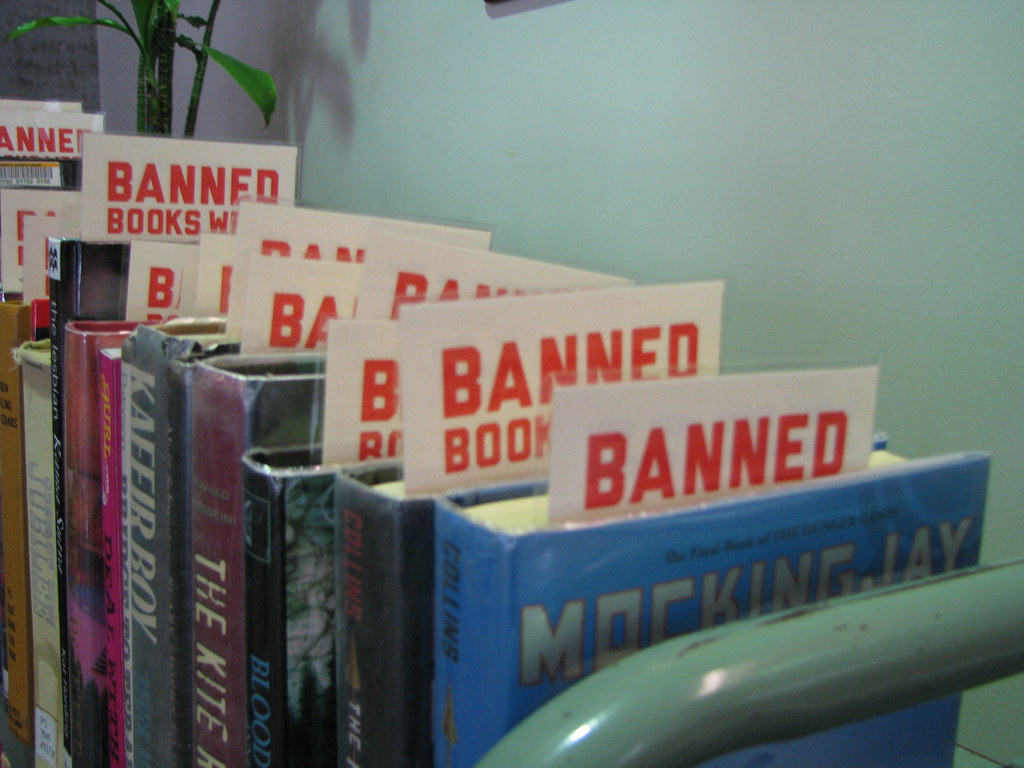
When a book is banned, the government or state has removed the title from public access, affecting libraries and schools who are now unable to showcase those titles for the public – stripping the book from its place on the shelf.
Every year, the American Library Association receives an increased amount of books challenged and furthermore a percentage of those challenged books to be banned. In the 2023-2024 school year, over 10,000 books were banned according to Poets, Essayists, Novelists America. This censorship from state to federal laws that saw a spike in 2020 has only since continued to rise.
While book bans are difficult to accomplish at the federal level due to the first amendment, they are easier to accomplish at local levels. Mary Logue, Point Loma Nazarene University associate professor of resource discovery librarian, witnessed these challenges first hand.
“I started working in the public library, which is where more challenges come up than in academic libraries,” Logue said. Through this job, she was contacted by a friend to gather further information on book bans to do a presentation on the topic in 2003.
With PLNU being a private university, not many attempts to ban books are presented to the school’s library. Logue said that proving a book to be detrimental to society is more strenuous compared to a public institution. With the aid from federal funding, however, the library has to be cautious.
One concern of Logue’s was that children would be unable to interact with the world and be moral citizens with the lack of access to such books.
“One of the great things about books that get banned is they’re often from a different perspective, especially if it’s a book that’s being banned that deals with racism or deals with gender issues,”
Logue said to how banning books would affect the youth. “People need to be able to see there’s other opinions out there – there’s other ways people have experienced the world.”
Several books that have been challenged or banned over the years include titles taught in some public and private schools across the nation. Some include: “To Kill a Mockingbird” by Harper Lee, “The Handmaid’s Tale” by Margaret Atwood and “Animal Farm” by George Orwell. The Burbank Unified School District and a public school in Biloxi, MS, have both banned “To Kill a Mockingbird,” and a school district in Stonington, CT, banned “Animal Farm” in 2017.
Savannah Hubbard, a first-year environmental studies major, said, “Banning books allows the erasure of an expression of people and history which negatively affects students who need to understand and learn about different perspectives and topics.”
Data from the American Library Association showed a 65% increase in titles aimed at being censored from 2022-2023. 17 states attempted to censor at least 100 book titles. The most challenged book title from this list being “The Absolutely True Diary of a Part-Time Indian” by Sherman Alexie.
A common form of censorship, James Wicks, PLNU professor of media and film studies, said is a “filter bubble” created by one’s previous searches on a search engine.
“When you conduct different searches online, the search terms you use start to determine what results you see,” Wicks said. “Then, when you conduct a search later, you’ve already been put into what’s called a filter bubble. Even if you search a third term, the filter bubble that you’ve already been placed into will determine which results you have.”
This form of censorship can grow into a larger scale: polarization, a divide created by different beliefs of what should and should not be in libraries. One solution of polarization is shared humanity, Wicks said. This idea is not agreeing with each individual’s conclusions, but rather allowing each person to share that view.
“We should work hard to maintain what we’ve inherited in terms of free speech that was hard won,” Wicks said. “And when we start to see little by little, those rights taken away, it reminds us that it’s not natural and a given that each generation will continue to enjoy those freedoms. They were hard won then, and they are hard now to maintain, and that’s our responsibility to strive for that.”
Wicks said that as a Christian, he treasures being able to express his faith through his work. And while this faith of his won’t align with someone else, he wants to be as gracious in receiving content from others he does not agree with.
“Libraries are storehouses of our collective cultural wisdom and should include every point of view,” Wicks said.
Several states continue to ban books, including the South Carolina Board of Education who voted to ban four on Tuesday, Feb. 4.
New Mexico is now considering banning book bans. Despite education boards around the U.S. banning thousands of books per year, the Department of Education announced on Jan. 24 that book bans were a “hoax.”
“If those [books] aren’t available as a society we have failed,” Logue said. “So I think that’s a huge detriment to society – if we don’t have all of the voices able to be heard and seen and valued, because having a book in a library and available says there’s value in that person’s story. And if you take it out, you’re saying it has no value or doesn’t belong in the world, and that’s not going to create a very good world.”
